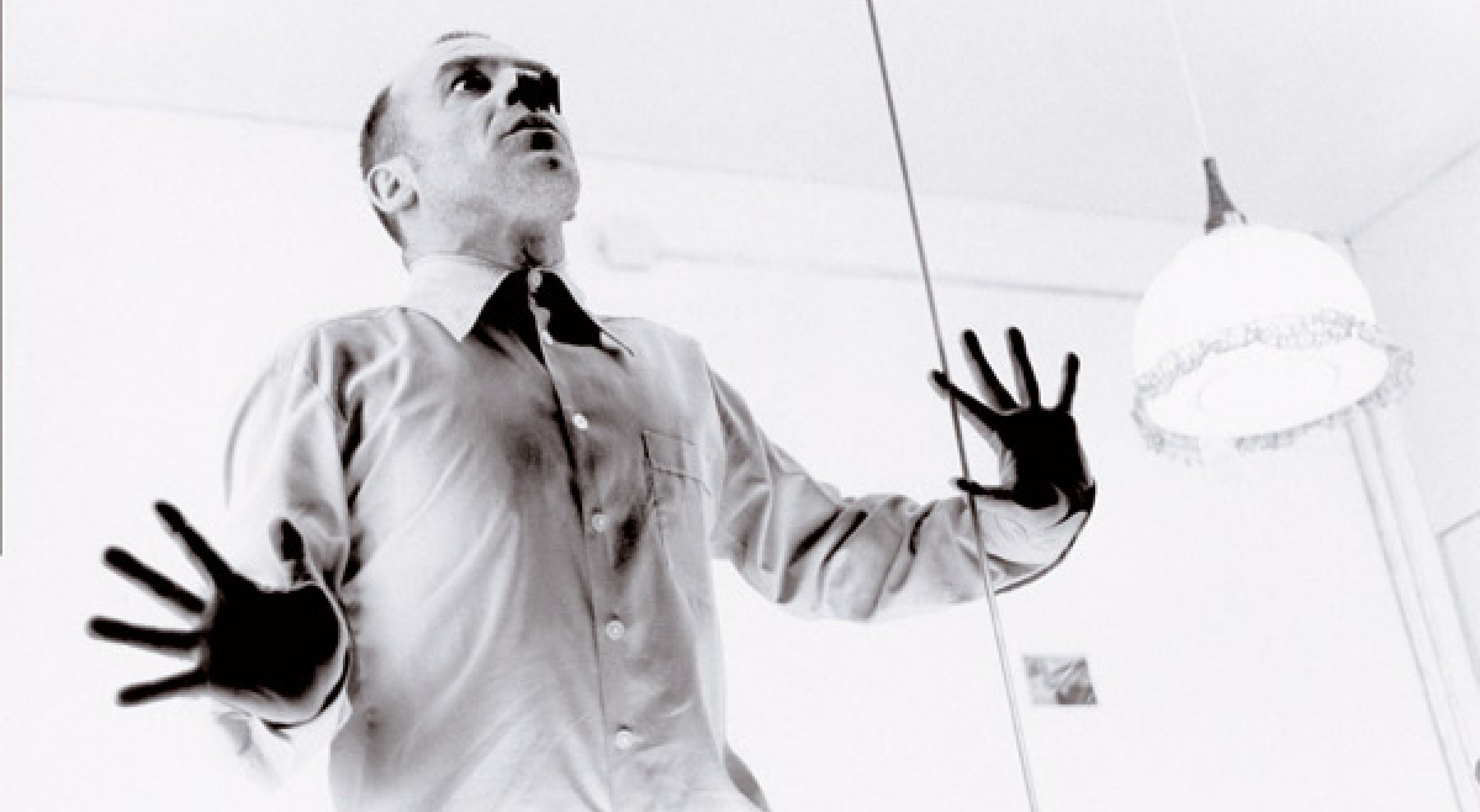Paul Plamper
Artaud se souvient d’Hitler et du Romanische Café
Archive 2012
Théâtre du Rond-Point
novembernov 14 – 18
novembernov 14 – 18
Artaud se souvient d’Hitler et du Romanische Café
by Tom Peuckert
Direction, Paul Plamper
Scenography and costumes, Paul Lerchbaumer
Music, plexiq
Technical Director, Stephan Besson
Light Ulrich Eh
Sound, Alexander Bramann
Costumes and Make up, Barbara Naujok
Light Ulrich Eh
Sound, Alexander Bramann
Costumes and Make up, Barbara Naujok
With Martin Wuttke
Production Berliner Ensemble
Corealisation Théâtre du Rond-Point (Paris) ; Festival d’Automne à Paris
Part of the Tandem Paris-Berlin, organised for the 25 years of friendship between the cities of Paris and Berlin
Partnership with France Inter
Premiered Octobre 3, 2000
at the Berliner Ensemble (Berlin)
On December 3, 1943, Antonin Artaud, author of the Theatre of cruelty, wrote a short note to Adolf Hitler “in memory of the Romanische Café”. This encounter, which probably never took place, inspired Tom Peuckert with a monologue, partly farcical and partly tragic, reflecting on the visionary power of art and the need for humaneness. Martin Wuttke leads the performance.
